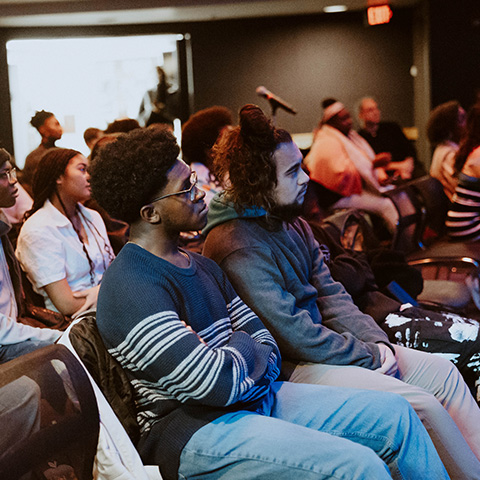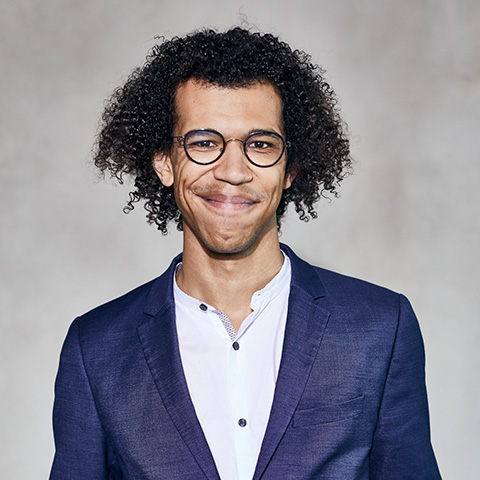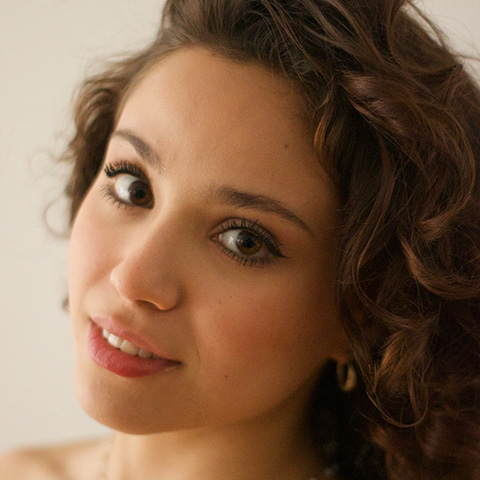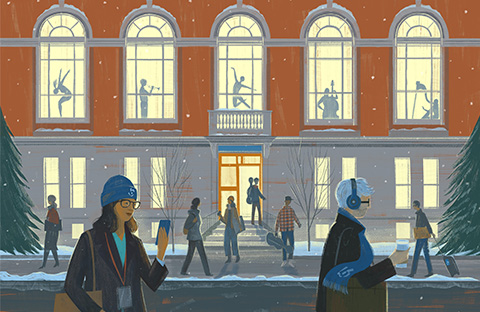Preservation Through Transformation

Foreword by Michael Shinn, D.M.A., Interim Executive Director, Boston Conservatory at Berklee
Is it possible to change and still be true to your roots? Can you honor tradition while embracing the new? At what point does evolution change a thing entirely? These are the questions that conservatories across the country are asking themselves as they grapple with a rapidly changing world—and performance landscape—that is challenging a centuries-old educational model.
We at Boston Conservatory maintain that you can evolve without losing your identity, and that even with all of today’s technology and career options, there is still merit in—and more need than ever for—conservatory-style training. But how this education is packaged and delivered for today’s students needs to look different from the way it looked even just a decade ago.
Conservatories differ from college programs in the complete immersion they offer in a particular art form, as well as their deep focus on mastery of specific techniques, forms, and repertoire. For this reason, conservatory training is—by its very nature—intense; with so much learning to pack into such a limited amount of time, this type of education is physically, mentally, and emotionally demanding. How do we provide more opportunities for our students without replacing essential studies? How do we incorporate new technologies and perspectives into our classrooms without abandoning our long-standing teaching traditions?
Merging with Berklee in 2016 was Boston Conservatory’s first bold step toward answering these questions and reimagining what a conservatory education could be. It was clear that a partnership with Berklee, with its technological resources and expertise in more contemporary studies, would not only provide an accelerated route for modernizing the curriculum—it would also create the world’s most complete, comprehensive ecosystem of performing arts and related fields.
To fully realize the potential of the merger and embrace this path of reinvention, Boston Conservatory identified three pillars upon which a contemporary conservatory education must be built in order to thrive in modern times: diversity in all its forms, academic innovation, and elevation, or global positioning.
I believe that through the thoughtful adaptation of our conservatory methodologies within this framework, we can fortify the core values and teaching traditions on which they were founded rather than dilute them. Our values can be preserved not only in their traditional forms but also in the spirit of their enduring relevance.
Here is a look at some of the transformative work we are doing to reshape our educational model and offer a new standard for what a conservatory education can be, now and in the future.
Embracing Diversity in All Its Forms
Boston Conservatory believes that a healthy diversity of people, aesthetics, and ideas is the foundation for an intellectually stimulating and sustainable learning environment. The knowledge shared through thoughtful dialogue and the exchange of differing perspectives not only inspires creativity and informs artistic expression—it also prepares students to collaborate across industries and across cultures. In today’s world of continuously evolving technology and the emergence of game-changing tools like AI, it is clear that a conservatory education can only thrive through a radical paradigm shift that moves away from a monolithic immersion in one aesthetic. Instead, we must embrace the undeniable diversity of our world to guide the artistic growth and excellence that is central to our mission while leading curricular, artistic, and cultural change.
- In recent years, Boston Conservatory has dedicated more than $2.5 million to support its diversity and inclusion initiatives, thanks to generous contributions to the Executive Director’s Momentum Fund and additional philanthropic support throughout the year. This funding has helped to increase available Thrive Scholarship dollars for Conservatory students in the greatest financial need; establish additional scholarship funding to support more diverse and representative incoming classes; and fund Faculty Strategic Innovation Grants, which provide funding for faculty-led initiatives that are driving academic innovation.
- The Zacharis Fund for Diversity, made possible by Trustee Marillyn Zacharis, has championed Boston Conservatory’s efforts to diversify its curriculum and broaden students’ exposure to underrepresented artists and works. Boston Conservatory Orchestra’s 2022 concert in Symphony Hall is just one of the many impactful projects made possible by the fund; that concert featured works by esteemed composer Adolphus Hailstork—who was in residence at Boston Conservatory for the week leading up to the event—as well as works by Bill Banfield and Conservatory alum Stefan Thompson.
- Underwriting support by generous donors such as Trustee Cindy Curme has enabled Boston Conservatory students to participate in the Berklee Gospel Performance Program, offered by Berklee’s Africana Studies Division. This summer program allows students to connect with roots of the gospel tradition by learning about the evolution of gospel music and exploring gospel’s cultural relevance to today’s contemporary music.
- Committed to engaging with artists of diverse backgrounds, Boston Conservatory has hosted dozens of guest artists across the fields of dance, music, and theater, including the Urban Bush Women dance company, Jennifer Archibald, Aszure Barton, Jessica Castro, Jessica Franco, the Marian Anderson String Quartet, Karen Slack, Xavier Foley, Nina Yoshida Nelsen, Julia Bullock, Awadagin Pratt, Cuarteto Latinoamericano, Jonathon Heyward, Chita Rivera, Michael R. Jackson, and Rami Malek, to name a few.

- A groundbreaking Africana Studies minor—offered through Berklee’s Africana Studies Division—is now available to Boston Conservatory students as of the 2023–2024 academic year. The minor allows students to explore the impact of the global African diaspora on different artforms, learning how the people, histories, and customs of the African continent have shaped cultures worldwide. This provides students with a specialized Afro-diasporic lens that can be applied to their art and also lays the groundwork for related graduate studies. The Africana Studies minor is among more than 30 that Boston Conservatory students can now declare through the larger Berklee institution, including Latin Music, Mediterranean Music, and Spanish Arts and Culture.
- Boston Conservatory at Berklee partners regularly with colleagues and groups at Berklee College of Music and Berklee NYC to record both new and underrepresented works, an effort intended to elevate new voices and those rarely heard. One example of such powerful collaboration includes a 360-degree video recording in Berklee NYC’s state-of-the-art studio by BoCoCelli, the Conservatory’s premier cello ensemble, featuring a unique program of works by Native American composers and women.
- Boston Conservatory has presented at key conferences such as the Sphinx Conference, the largest and longest-standing convention dedicated to diversity and inclusion in classical music. This year, Berklee’s Africana Studies Division will join Boston Conservatory at key events to strengthen and reinforce the institution’s leading work in diversity, equity, inclusion, and belonging.
Academic Innovation: A Refreshed Approach
As we prioritize diversity as the framework of our educational approach, each Boston Conservatory division has been undergoing a deep and methodical curricular review to contextualize its teaching of classical materials, expand studies beyond the Western canon, and redefine artistic values and standards of excellence that are not limited to traditional Western art forms. This curricular revamp is enabling Boston Conservatory to deliver a contemporary conservatory education and establish academic structures for continual review and refinement.
- Boston Conservatory developed its signature BCB Method, a curricular framework built around four modalities that create a transformational educational and artistic journey for students: immersion, deconstruction, integration, and identity. Designed to help students cultivate future-proof skills that equip them to thrive in a constantly evolving performing arts landscape, the BCB Method has been applied to programs in all divisions (dance, music, and theater).
- In 2021, Boston Conservatory introduced annual Faculty Strategic Innovation Grants for faculty members, which provide funding to academic initiatives that support the school’s key values and goals. These grants have led to impactful revisions of the curriculum, including the Dance Division’s work in decentering ballet and its exclusionary structures; the Music Division’s new required ethnomusicology course, now part of the music history sequence; and the Theater Division’s sequencing of the B.F.A. acting curriculum, which ensures a consistent and meaningful progression of learning throughout a student’s four-year journey.
- In 2022, Boston Conservatory successfully launched a three-year commercial dance program that continues to be in high demand. This program is the first and, currently, the only one of its kind, making our top-ranking dance training more affordable and accessible.
- Boston Conservatory is continually growing its roster of professional partners, offering our students vital connections with top artistic organizations. Recent partnership examples include collaborations with Silkroad, whose members teach and perform with students; Boston Lyric Opera, through which Boston Conservatory’s new Opera Innovators Series is made possible; Boston String Academy, which engages our students in important community service work; the Radio City Rockettes, who are teaching an exclusive, first-of-its-kind Rockettes Precision Dance Technique course; the Ryan Seacrest Foundation, through which dance students teach popular TikTok dance trends to patients at Levine Children’s Hospital in North Carolina and their nationwide network; and SpeakEasy Stage Company, which immerses theater students in an array of real-world experiential learning opportunities.

- Berklee offers more than 250 courses available to Boston Conservatory and Berklee College of Music students through cross-registration. These courses include offerings in music business, technology, film scoring, recording engineering, songwriting, and more.
- Boston Conservatory and Berklee College of Music students can choose from more than 80 shared student organizations representing a wide range of topics, affinities, and industries, including Asian Culture & Performance Club, Disabilities Club, Indian Cultural Association, Women in Action, Bettering Boston, BoCo Cares, Black Student Union, Black Student Alliance (BSA), Latinx Student Alliance (LSA), and much more.
Elevation: Amplifying Our Impact
Every day, Boston Conservatory works tirelessly to actualize the school’s vision for a new-and-improved conservatory educational model. The success of this work is apparent well beyond the Conservatory’s walls and across the greater educational and performing arts landscapes. With continued awareness and support, the impact of these efforts will be felt across the globe.
- For the past several years, Boston Conservatory has earned high praise and coveted accolades from some of the industry’s top authorities, reinforcing the success of the Conservatory’s innovative work. Among the recent highlights: DanceUS.org has named Boston Conservatory at Berklee in its list of Best College Dance Programs in the United States for the past four consecutive years, noting that Boston Conservatory’s contemporary dance program is widely recognized as the best in the United States; TheBestSchools.org ranked both Boston Conservatory at Berklee and Berklee College of Music among its top 10 schools for musicians for the second year in a row, ahead of several other well-known institutions; and Playbill included Boston Conservatory on its list of the 10 most represented colleges on Broadway in 2023, 2022, 2021, 2019, and 2018 (no list was produced in 2020 due to the pandemic).

Jonathon Heyward
- Boston Conservatory alums are leading in their fields, proving that a Boston Conservatory education delivers. To highlight a few, Jonathon Heyward (B.M. '14, cello), who recently made headlines as the first Black music director of the Baltimore Symphony Orchestra, has also been appointed music director of Lincoln Center’s summer orchestra (formerly known as Mostly Mozart) and was named in Baltimore Business Journal’s “40 Under 40” roundup; Emmitt Cawley (B.F.A. '20, contemporary dance) is dancing with the Nederlands Dans Theater, one of the world’s top dance companies; Laura Bibbs (B.M. '19, trumpet) toured with Harry Styles across the U.S. and Europe, performing for record-breaking crowds; Gabriella Reyes (B.M. '16, voice) is performing as Rosalba in the Metropolitan Opera premiere of Florencia en el Amazonas, the first Spanish opera presented by the Met in more than a century; Ana Nogueira (B.F.A. '07, musical theater) is writing the screenplay for the Warner Brothers DC Studios’ film Supergirl; and Andrew Durand (B.F.A. '08) starred as Beau in the Tony-nominated musical Shucked and originated the role of Musidorus in Head Over Heels.

Juliette Ojeda
Current students are also making waves and helping to put Boston Conservatory on the map. Take, for example, Juliette Ojeda (B.F.A. '26, musical theater), who dazzled Gwen Stefani with her bilingual rendition of “Hopelessly Devoted to You” on NBC’s The Voice; Sophie Reynolds and Isabelle Richards (both B.F.A. '24, commercial dance), who recently made their debut with the Celtics dance team; April Ong (B.M. '24, percussion) and Chandler Beaugrand (M.M. '24, marimba), who placed first in the Open Duo division of the 2023 Great Plains International Marimba Competition; and Chenglin Yang (M.M. '24), who won a position with Wuxi Symphony, a newly formed orchestra in his home province of Jiangsu, China.
READ: STAGES 2024

“Preservation Through Transformation” first appeared in the 2024 issue of STAGES, Boston Conservatory’s annual magazine.
